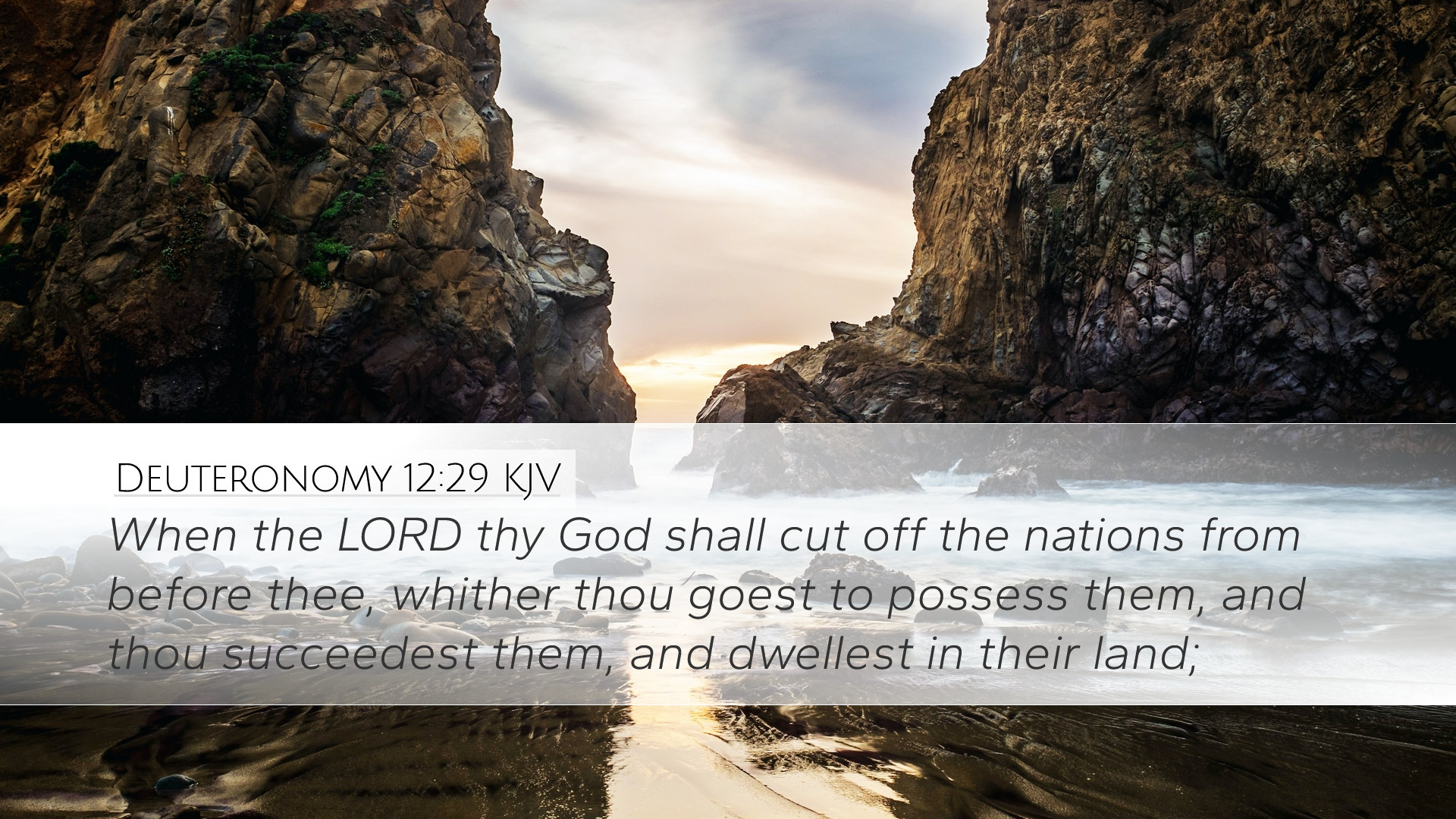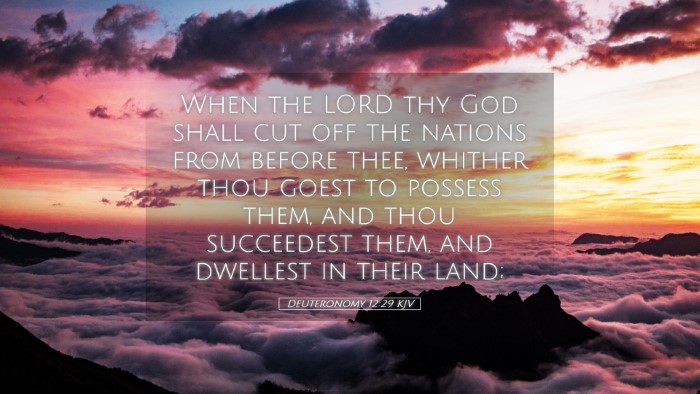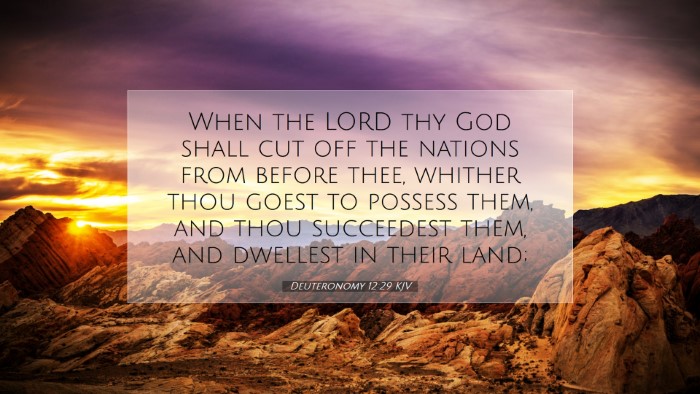Commentary on Deuteronomy 12:29
Verse Text: "When the LORD your God cuts off before you the nations which you go to dispossess, and you displace them and dwell in their land," (Deuteronomy 12:29, NKJV)
Introduction
Deuteronomy 12:29 is a pivotal verse within the broader context of the Book of Deuteronomy, as it addresses God’s promise to Israel regarding the conquest of the land of Canaan. The verse serves as a reminder of God's sovereignty and His active role in the dispossession of nations.
This commentary synthesizes insights from prominent public domain scholars such as Matthew Henry, Albert Barnes, and Adam Clarke. It seeks to uncover the implications of divine intervention and the responsibilities of Israel as they settle in the Promised Land.
Contextual Analysis
The Book of Deuteronomy is often viewed as Moses’ farewell address to the Israelites. It underscores the importance of obedience to God's commandments and the consequences of idolatry. Understanding Deuteronomy 12:29 requires an awareness of the preceding verses that discuss the sanctity of worship and the dangers of assimilating into the practices of the nations they are to dispossess.
- Historical Context: The Israelites were on the brink of entering a new land, necessitating divine support and guidance.
- Theological Significance: This passage emphasizes that the land is a gift from God, underlining His authority and control over the nations.
Moses’ Warning and Encouragement
Moses serves as both a prophet and a leader, warning the Israelites of the potential for spiritual compromise when interacting with the native peoples of Canaan. They must heed God's commands to ensure their survival and prosperity in the land.
Matthew Henry argues that the removal of the nations is a direct act of divine providence, highlighting that their possession of the land solely rests upon God's grace. He emphasizes the necessity for Israel to remain faithful and not to adopt the idolatrous practices of their predecessors.
Divine Sovereignty in Conquest
Albert Barnes emphasizes the theological implications of God 'cutting off' the nations before Israel. This verb signifies a decisive act of divine judgment, illustrating that God not only guides but also judges nations based on their iniquity.
Barnes reflects on how this act is a prelude to Israel's blessings: "God had reserved the land for His people,” reinforcing that the conquest was not merely a military undertaking but a fulfillment of covenantal promises. Thus, God is portrayed as both a protector and a judge, executing His purposes through history.
The Ethical Implications for Israel
As Israel steps into a realm of divine promise, there arises an ethical imperative. Adam Clarke focuses on the moral responsibilities that accompany the possession of the land. He admonishes the Israelites to treat the land and its original inhabitants with respect while emphasizing the necessity to uphold God's laws above all else.
- Caution Against Idolatry: Clarke points out that mingling with the nations could lead to spiritual decay and forsaking God.
- Obligation of Righteous Conduct: Israel must conduct themselves in a manner that aligns with God's statutes, ensuring that their actions mirror His holiness.
The Centrality of Worship
The central theme of worship in Deuteronomy is paramount, as God desires a people devoted to Him alone. This passage indicates that the Israelites are to root their identities and communities in worship that acknowledges God's sovereignty.
Henry’s Commentary reveals that the act of worship must stem from a heart aligned with God's commandments. As they settle in Canaan, their act of worship becomes a testimony against the idolatrous practices they might encounter.
He emphasizes that worship in the true sense must be exclusive to God, diverging from the practices of the nations they are to displace.
Application for Today
The implications of Deuteronomy 12:29 extend beyond its immediate historical context to the contemporary believer. The call to vigilance against idolatry and the necessity for unwavering devotion to God remains highly relevant. Pastors, students, and theologians can draw valuable lessons on the importance of spiritual integrity and fidelity to God's commands in their personal lives and ministries.
Moreover, the text serves as a reminder of God's active role in history and the assurance that He fulfills His promises, compelling believers to trust in His omnipotence as they navigate their faith journeys.
Conclusion
Deuteronomy 12:29 encapsulates the essence of God's covenant relationship with Israel as they prepare for conquest. By weaving together insights from Henry, Barnes, and Clarke, we uncover a rich tapestry of theological significance, ethical imperatives, and practical applications that resonate within the hearts of believers today.
In summary: This verse calls for awareness of God's sovereignty, the importance of remaining faithful, and the necessity of worship founded on true acknowledgment of God’s holiness.


